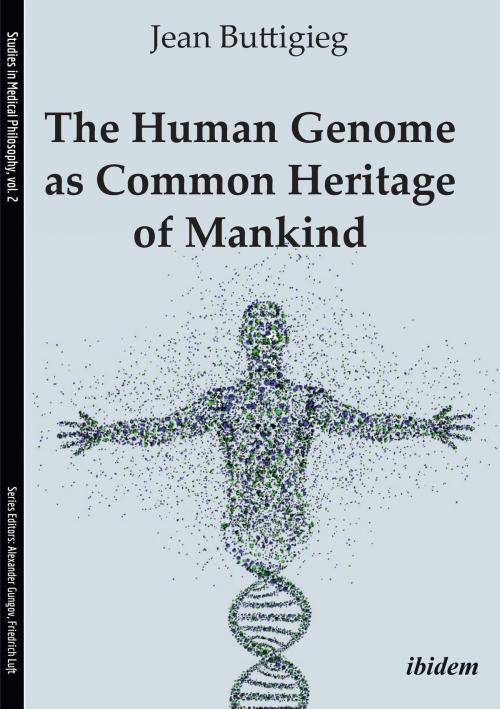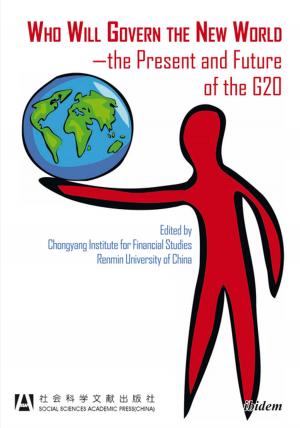The Human Genome as Common Heritage of Mankind
Nonfiction, Science & Nature, Science, Biological Sciences, Genetics| Author: | Jean Buttigieg, Alexander Gungov, Friedrich Luft | ISBN: | 9783838271576 |
| Publisher: | ibidem | Publication: | April 30, 2018 |
| Imprint: | ibidem | Language: | English |
| Author: | Jean Buttigieg, Alexander Gungov, Friedrich Luft |
| ISBN: | 9783838271576 |
| Publisher: | ibidem |
| Publication: | April 30, 2018 |
| Imprint: | ibidem |
| Language: | English |
In this timely study, Jean Buttigieg demonstrates the necessity to make it a legal principle of international law that the human genome is a common heritage of mankind. In 1997, the UNESCO General Conference declared the human genome a common heritage of humankind. This declaration was followed by the Joint Statement of March 14, 2000, by US President Bill Clinton and British Prime Minister Tony Blair, in which they stated that the “fundamental data on the human genome, including the human DNA sequence and its variations, should be made freely available to scientists everywhere.” This announcement to allow “unencumbered access” to this fundamental data on the human genome, for the benefit of all humanity, appeared to endorse the UNESCO Declaration of 1997 on the human genome. But as it turns out, these statements were only political slogans since there is a complete lack of any genuine attempts to make the human genome a legal principle of international law so far. This study's foremost goal is to re-introduce the philosophical and political implications of the concept of common heritage of mankind into public discourse, as intended by Arvid Pardo when he addressed the UN General Assembly on November 1, 1967, and apply them to the human genome. As Buttigieg demonstrates, the biggest challenge here comes from the patent system in its present form, which encourages the commercialization of the human genome by explicitly denying scientists “unencumbered access” to the fundamental raw data. By putting individual rights before community rights, the patent system effectively hinders discoveries that prompt new and better medical treatments. Buttigieg also discusses issues of biotechnology. While the biotechnology debate is very often centred on which new applications of biotechnology should or should not be permitted, it so far lacks a critical philosophical analysis of biotechnology itself. The true essence of the human genome, Buttigieg argues, is to be found in metaphysics and not biology. This study fills a gap in the literature on the human genome and the common heritage of mankind by addressing the metaphysical nature of the human genome and discussing the philosophical concerns surrounding the field of biotechnology.
In this timely study, Jean Buttigieg demonstrates the necessity to make it a legal principle of international law that the human genome is a common heritage of mankind. In 1997, the UNESCO General Conference declared the human genome a common heritage of humankind. This declaration was followed by the Joint Statement of March 14, 2000, by US President Bill Clinton and British Prime Minister Tony Blair, in which they stated that the “fundamental data on the human genome, including the human DNA sequence and its variations, should be made freely available to scientists everywhere.” This announcement to allow “unencumbered access” to this fundamental data on the human genome, for the benefit of all humanity, appeared to endorse the UNESCO Declaration of 1997 on the human genome. But as it turns out, these statements were only political slogans since there is a complete lack of any genuine attempts to make the human genome a legal principle of international law so far. This study's foremost goal is to re-introduce the philosophical and political implications of the concept of common heritage of mankind into public discourse, as intended by Arvid Pardo when he addressed the UN General Assembly on November 1, 1967, and apply them to the human genome. As Buttigieg demonstrates, the biggest challenge here comes from the patent system in its present form, which encourages the commercialization of the human genome by explicitly denying scientists “unencumbered access” to the fundamental raw data. By putting individual rights before community rights, the patent system effectively hinders discoveries that prompt new and better medical treatments. Buttigieg also discusses issues of biotechnology. While the biotechnology debate is very often centred on which new applications of biotechnology should or should not be permitted, it so far lacks a critical philosophical analysis of biotechnology itself. The true essence of the human genome, Buttigieg argues, is to be found in metaphysics and not biology. This study fills a gap in the literature on the human genome and the common heritage of mankind by addressing the metaphysical nature of the human genome and discussing the philosophical concerns surrounding the field of biotechnology.















